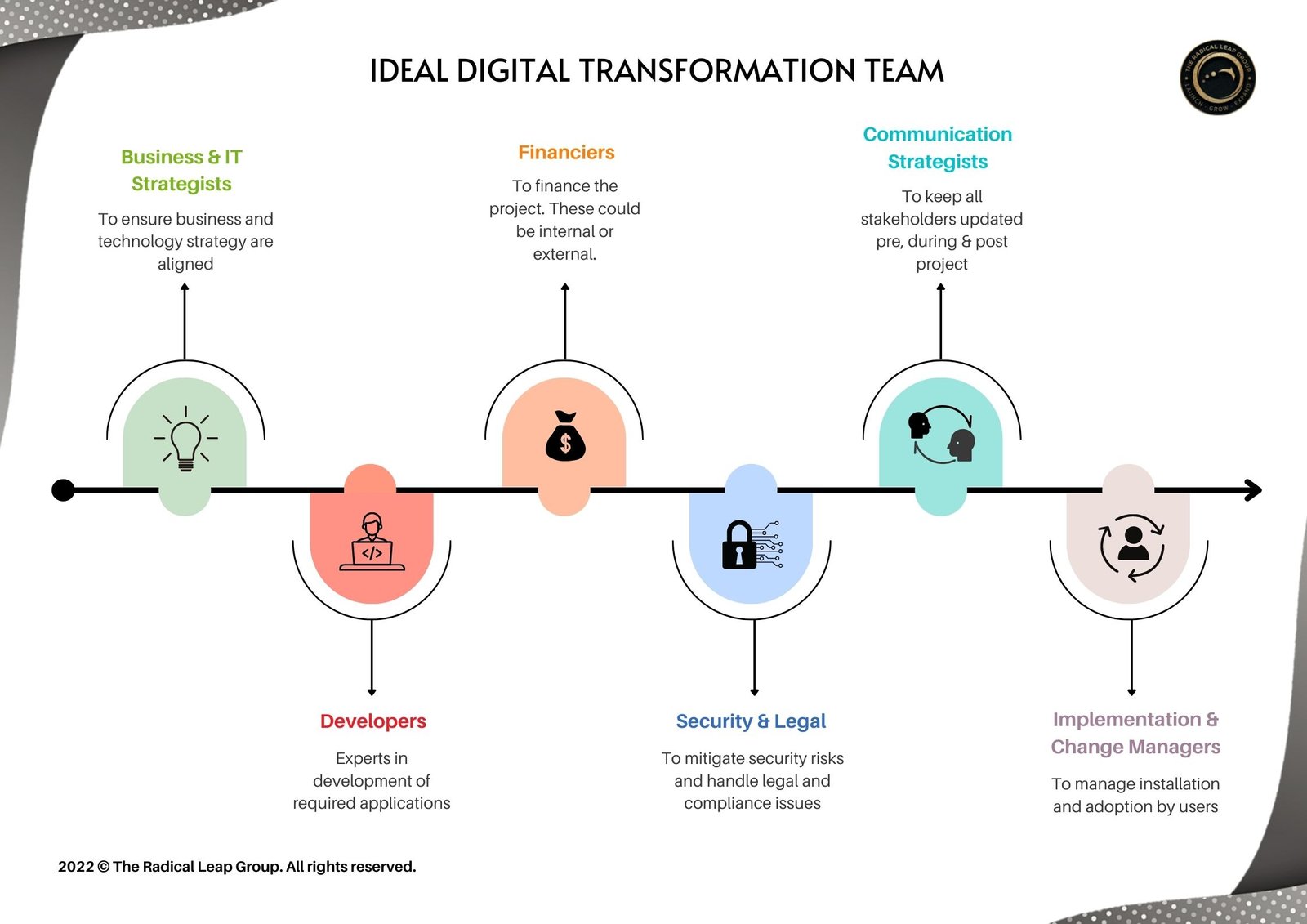Digital transformation puts technology at the core of your business strategy to improve processes, increase efficiency and respond adeptly to market demands. An effective digital transformation strategy can position your business to thrive in a dynamic global market, and excel where technology is required to drive sustainable growth.
Harness Technology to Transform Your Business

Frequently Asked Questions About Digital Transformation
What are the benefits of digital transformation?
Most businesses have multiple stakeholders; employees, customers, partners, and shareholders. Digital technologies add value to businesses in the following ways:
- Increase operational efficiency within the business
- Increase the speed of product or service delivery
- Increase employee performance and productivity
- Improve customer service
- Better data collection and analysis to drive better and speedier decision-making at all levels of the business
Which technologies are required for digital transformation?
No single technology enables transformation. If anything, several technologies can be required for digital transformation within any business. Many things come into consideration when digitalising a business:
- Internal operational needs
- Competitive positioning
- Market demands and trends
- Industry requirements and changes
For this reason, there is no one-size-fits-all. For example, the technologies required in food manufacturing will be different from technologies required in management consulting. It all begins with a thorough assessment of where the business is, where it wants to go and how technology can enable or enhance the achievement of that.
In which cases might digital transformation fail?
The biggest mistake any business can make is assuming that simply adopting technology or introducing a new technology will completely transform the business. There are other factors to consider to ensure successful digital transformation. Here are some reasons why failure may happen:
- No or low employee engagement
Without effectively managing the change process and engaging employees through the whole journey, failure is highly likely - No or low management buy-in
The need for unification in a business is crucial for any digital transformation project to be successful. If management is not on-board the train, support to the rest of the team will be minimal or completely lacking - No or low in-house expertise
Even with the outsourcing of technology functions for many small-to-medium enterprises, not having an in-house technology expertise can be a recipe for disaster. - No digital skills training for internal users
Fancy technology may make your business look good. But users are not adequately trained in using and managing the technology the investment will have been a waste - Data security
The threat of cyber security for all industries is growing. This means that with adoption of any technology this threat could become real without adequate and ongoing protection - Budgetary challenges
Undertaking any form of digital transformation requires an adequate budget from start to completion. Many small-to-medium enterprises underestimate the cost of digitalisation - Changes in legislation
It’s not uncommon for legislation in an industry or country to change requiring changes in development or usage of a technology. When small-to-medium enterprises with limited budgets are caught off-guard it can be costly
- No or low employee engagement
Who makes up a digital transformation team?
Your business may or may not have all the human capital required for a digital transformation project. Where the expertise is not available in-house, we can assign a selected team for the duration of the project or longer term depending on business needs. Request a consultation to learn more.

How to Get Started
1. Book Consultation Here
No Charge
2. Scope, terms & quote
Pay Deposit
3. Work begins
Payment Plan Activated
4. Milestone updates
Included in Fees
5. Final handover
Final Payment





